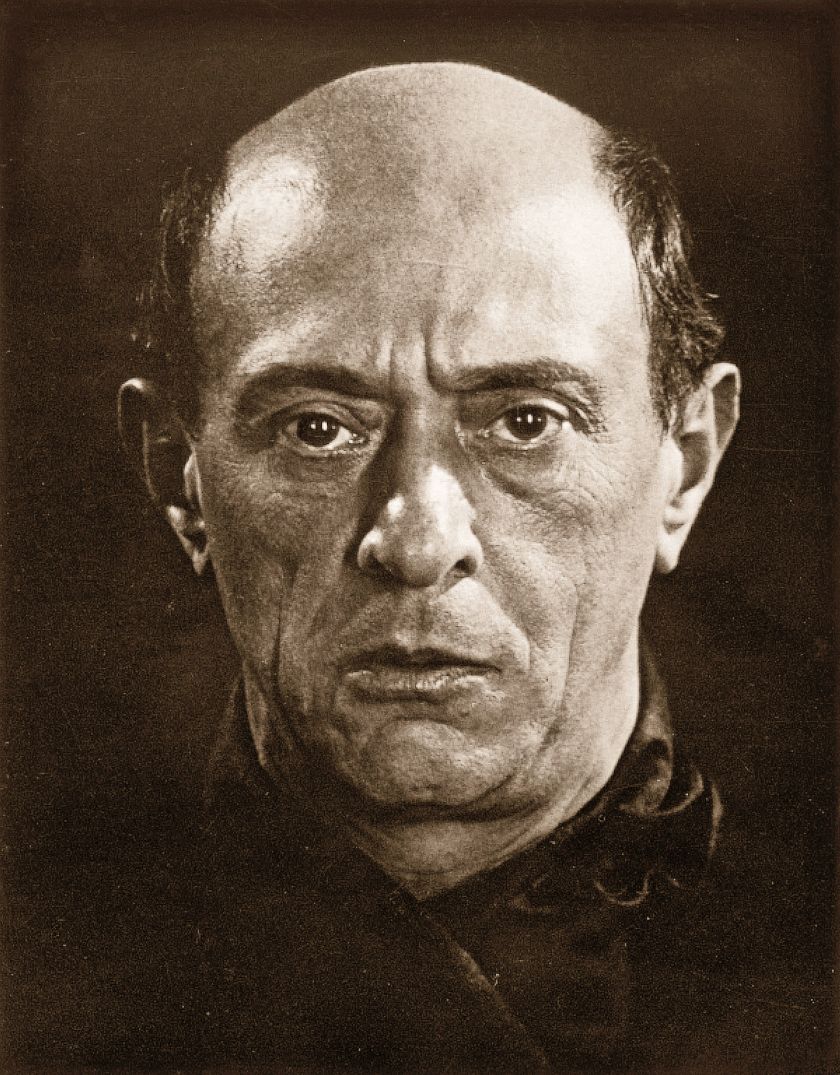Time with Schoenberg
Aquarell auf Papier (Kontobuchseiten), 61,4 x 91,3 cm
Courtesy Martha Jungwirth, Foto: Lisa Rastl
© Martha Jungwirth/Bildrecht, Wien 2023
Arnold Schoenberg‘s œuvre in the Context of his Time

© Man Ray 2015 Trust/Bildrecht, Wien 2023 (Foto: GRANGER — Historical Picture Archive/Alamy Stock Foto)
This cycle explores the composer on the occasion of his 150th birthday as the epitome of a century. Arnold Schoenberg’s achievements as a composer, from the regions of finite romanticism to the emancipation of dissonance in free atonality to the method of dodecaphony, are embedded within the music of influential precursors, students and heirs: from Wagner, Beethoven, Brahms and Mahler to Schreker, Berg, Webern and Eisler to our own times.
The driving and change-making power of his output has had the utmost importance for the development of the art of music to this day, which can be heard when examining the emergence of the Tristan harmonics in early programme music, whole-tone scales and fourth harmonies in the merging of chamber music and symphony, sound-colour melodies in orchestral pieces and dodecaphonic structures in piano works. An absolute refusal to compromise, the will to fight for innovation and an absolute belief in progress – all these burdened Schoenberg with the reputation of being a musical engineer. As far as his music may have strayed from the conventions of the music business, it remained deeply rooted in the examination of the soul and its stirrings. “The experiences of his heart are transformed into notes.” (Anton Webern)
Schoenberg’s writing and thinking were inspired significantly by the writer, journalist and reciter Karl Kraus, who was the same age as Schoenberg. As the attorney for and judge of language and its usage, Kraus stood for its values, for the struggle against the corrupting phrase-making of the media. His World War I drama The Last Days of Mankind (excerpts of which Erwin Steinhauer will recite) sketches the process of destruction and the reality of mass tragedy in World War I with a satirical voice. Schoenberg took this text about suffering, inhumanity and power structures to his American exile, where he wrote his Ode to Napoleon Buonaparte, a compendium of the second immeasurable catastrophe of the 20th century.
“Time with Schoenberg” illuminates the composer as an inspirer, highlighting facets of his musical heritage: from Luigi Nono to Olga Neuwirth, whose score for the silent film The City Without Jews artfully “forces truth to the fore” (Elfriede Jelinek). The writer Hugo Bettauer, a contemporary of Schoenberg and Kraus, whose eponymous novel formed the basis of the film script, shared with them the sensitivity for the rising disharmonies of National Socialism. The expulsion of the Jews becomes the symbol not only of one single epoch of cultures declaring themselves superior, but all of them. This is another way in which the concert cycle “Time with Schoenberg” bridges the historical gap between the composer and our own era.
Therese Muxeneder
First published in the Festival insert of Salzburger Nachrichten 2024
Translation: Alexa Nieschlag
